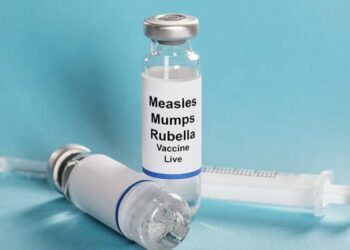The UN World Health Organisation has warned that severe funding cuts – particularly by the United States – are threatening decades of progress in the fight against tuberculosis, still the world’s deadliest infectious disease.
The health agency highlighted that essential prevention, testing, and treatment services were collapsing, leaving millions at risk.
Africa, Southeast Asia, and the Western Pacific are the hardest-hit regions, where national TB programmes depend heavily on international support.
“Any disruption to TB services – whether financial, political or operational – can have devastating and often fatal consequences for millions worldwide,” Tereza Kasaeva, Director of WHO Global Programme on TB and Lung Health, said in a statement on Wednesday.
Explainer: Cholera
UN Secretary-General António Guterres had on Feb. 24. also raised the alarm over funding cuts, noting the immediate impact on key health programmes combatting HIV/AIDS, tuberculosis, malaria, and cholera.
Over the past two decades, global TB programmes have saved more than 79 million lives, averting approximately 3.65 million deaths last year alone.
A significant portion of this success has been driven by US Government funding, which has provided about $200 to $250 million annually – approximately a quarter of the total international donor funding secured.
The U.S. has been the largest bilateral donor for programmes combating the disease.
However, newly announced cuts for 2025 through executive orders will have devastating impacts on TB response efforts in at least 18 high-burden countries, where 89 per cent of expected US funding was allocated for patient care.
The impact will be particularly devastating in Africa, where treatment disruptions and staff layoffs could exponentially increase TB transmission rates.
Early reports from TB-affected countries indicate that funding constraints are already dismantling essential health services.
Among the most pressing concerns are health worker layoffs, drug shortages and supply chain breakdowns, data and surveillance systems collapse, and disruptions to TB research and funding.
“Without immediate action, hard-won progress in the fight against TB is at risk. Our collective response must be swift, strategic, and fully resourced to protect the most vulnerable and maintain momentum toward ending TB,” Kasaeva said.
WHO reaffirmed its commitment to supporting governments and global partners in the fight against TB.
“In these challenging times, WHO remains steadfast in its commitment to supporting national governments, civil society and global partners in securing sustained funding and integrated solutions to safeguard the health and well-being of those most vulnerable to TB,” Kaeseva said.
NAN











